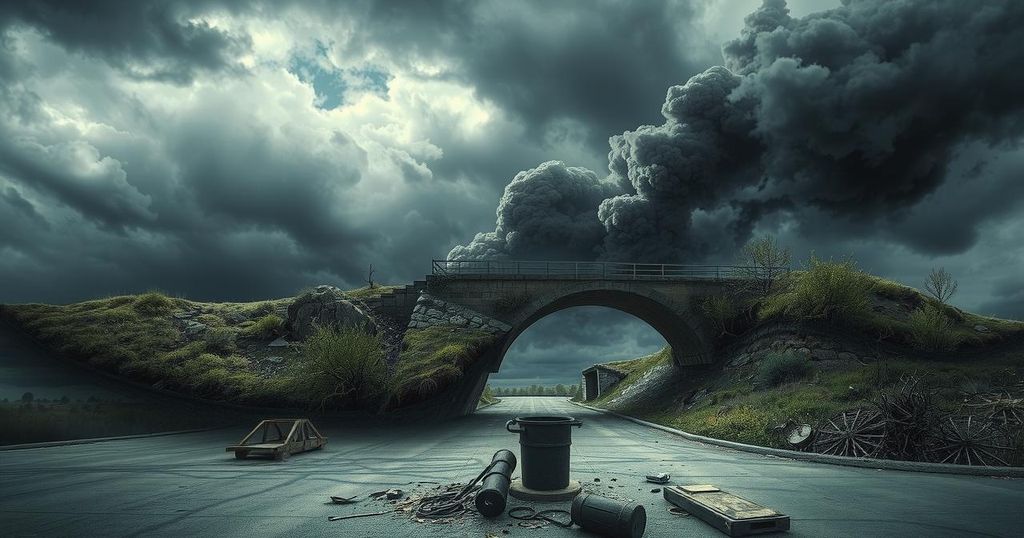The Democratic Republic of Congo and M23 rebels accuse each other of responsibility for deadly explosions at a rally in Bukavu that killed 13 and wounded many. The incident escalates the tension in eastern Congo amid a backdrop of regional conflict. Despite international sanctions, the situation continues to deteriorate, with thousands displaced and lives lost.
On Friday, the government of the Democratic Republic of Congo and the Rwandan-backed M23 rebel group engaged in a mutual exchange of blame regarding recent explosions at a rally in Bukavu, a city under rebel control. These blasts resulted in the deaths of 13 individuals, with many others injured, exacerbating the already tense political and ethnic landscape of eastern Congo, where ongoing rebel advances have sparked concerns of a potential regional conflict.
Congo’s military accused Rwandan forces of launching rockets and grenades into a crowd gathered for a speech by a rebel commander. The Congolese Interior Ministry stated, “The Rwandan army and its (proxies) bombed and fired live ammunition at the civilian population who, although forced to attend this meeting, expressed their disapproval of the Rwandan aggression.” Rwandan officials have not responded to these allegations and consistently deny supporting the M23 rebels.
Corneille Nangaa, the leader of the rebel alliance, attributed the violence to Congolese President Felix Tshisekedi. He claimed that the grenades used in the attack matched those employed by the Burundian army, which collaborates with Congo’s military, though this assertion lacks independent verification. Burundi’s military has denied any presence in Bukavu and refrained from commenting specifically on the grenade issue.
Witnesses reported observing an assailant whose grenade detonated prematurely, killing rally attendees instead of targeting the intended convoy of rebels. The chaos resulted in significant casualties, with approximately 68 people currently treated at Bukavu’s general hospital, and many families waiting to identify the remains of their loved ones, as the ministry reported nearly 100 serious injuries from the incident.
Despite international sanctions and ongoing peace negotiations, the M23 rebels have continued their advancement, claiming key cities in eastern Congo. Recently, the United States sanctioned a Rwandan minister, while the United Kingdom threatened to suspend aid unless Rwanda withdraws its forces from Congo. Congo’s Communications Minister Patrick Muyaya voiced concerns over the insufficient impact of these sanctions: “The proof is that the Rwandan army is still there.”
Kigali maintains that its military operations are defensive, aimed at combating Congolese forces alongside armed groups allied with Rwandan Hutu rebels associated with the 1994 genocide. Since the beginning of the year, around 7,000 fatalities and significant displacement have been reported due to the ongoing unrest, with the United Nations noting a surge of 60,000 people fleeing into Burundi within just two weeks, marking an unprecedented exodus of this nature in recent times.
In summary, the blame game between the Democratic Republic of Congo’s government and M23 rebels over deadly rally explosions highlights the escalating tensions in eastern Congo. The attack has led to numerous casualties and underscored the region’s volatile political climate. International responses, including sanctions, have thus far failed to alleviate the violence, raising concerns about ongoing unrest and humanitarian crises in the area.
Original Source: www.usnews.com




